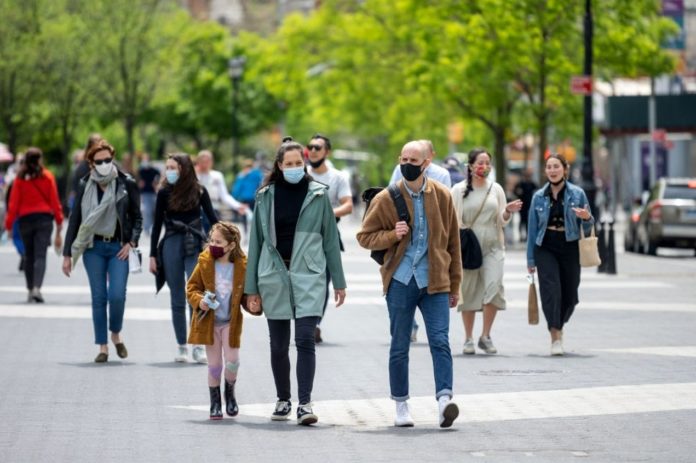Emerging data suggest that changing our eating choices can reduce our overall susceptibility to infectious diseases.
A new randomized controlled trial from the U. S. demonstrates how regular consumption of the Lactobacillus rhamnosus GG (LGG) probiotic could protect against COVID-19.
Probiotics may influence the human immune system and its inflammatory responses by influencing the intestinal microbiota, according to the study.
Some recent studies suggest that bacterial Lactobacillus species prophylaxis can help to prevent upper and lower respiratory tract infections, improve outcomes in ventilator-associated pneumonia cases, and even reduce sepsis burden in healthy infants.
As a result, probiotics may be a generally helpful and low-risk method for reducing the risk of coronavirus disease, particularly in locations where vaccination availability or adoption is bad. LGG is the most promising of these compounds, as evidenced by its positive outcomes in several clinical trials and in vivo tests.
To find out more about the health benefits of LGG for people who have been exposed to COVID-19, a group of researchers set up the study. The group was led by Dr. Paul E. Wischmeyer and Dr. Helen Tang from Duke University School of Medicine.
They tested the probiotic LGG as post-COVID-19 exposure prevention in a randomized, placebo-controlled, double-blind experiment across the United States.
For the study, they recruited 182 individuals older than one year of age, who were in close contact with someone who had a recent (i.e., within seven days) diagnosis of COVID-19. During the 28-day study, these subjects were randomly assigned to receive either daily LGG or a placebo. Furthermore, their stool was collected for the purpose of evaluating their microbiome composition.
The study hypothesis was that LGG prophylaxis will reduce the number of confirmed diagnoses as well as the incidence of symptoms compatible with COVID-19 infection within 28 days (primary endpoint).
Through the use of the intention-to-treat analysis, the researchers discovered that participants who were taking LGG were less likely than those who were taking the placebo to develop symptoms by day 28. Furthermore, people who took LGG had a much longer time before experiencing symptoms.
Despite the fact that those randomized to get LGG had a lower COVID-19 burden, this result was not statistically significant. Furthermore, no gender differences were seen, while older study participants were more likely to report symptomatic disease.
Finally, microbiome research revealed that trial participants who got LGG had much more Lactobacillus rhamnosus in their stomach than those who merely received a placebo, as well as a significant change in the overall structure of resident gut microbes.
In short, these findings imply that LGG probiotic may provide some protection against the development of COVID-19 infection, but it may also be useful in slowing symptom development when used as post-exposure prophylaxis within seven days of exposure.
“While limited in sample size, our study suggests that LGG is well-tolerated and is associated with prolonged time to development of COVID-19 infection, reduced symptomatic disease, and changes to gut microbiome structure,” said the study authors.
“Further investigation of LGG probiotic intervention in larger randomized controlled trials is warranted, including comparison of pre-exposure vs. post-exposure prophylaxis with LGG probiotic in high-risk populations.”
These findings lend credence to the hypothesis that our symbiotic bacteria, our own gut microflora, can be seen as crucial partners in the battle against COVID-19, as well as against other pandemic diseases that may arise in the future, including influenza.
Source: medrxiv
Image Credit: Getty
You were reading: Daily Lactobacillus probiotic improves recovery after catching Coronavirus, says study
*Important Note: Since bioRxiv publishes preliminary scientific studies that have not been peer-reviewed, they should not be regarded as conclusive, should not be used to direct clinical practice/health-related behavior, and should not be seen as established information.
